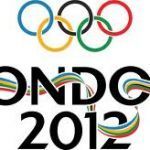Olympic-Size Decision on Social Media for 2012 Games in London

[image error]With the 2012 Summer Olympics just around the corner next summer in London, the International Olympic Committee (IOC) has made sure that it gives both officials and athletes a gold medal review of the proper usage of social media before and after the big event.
On the official side, the IOC announced recently those candidates for its next presidential election will be prohibited from using social networks in efforts to lobby their candidacies on the Internet.
The rules, given the go-ahead recently by the IOC executive board, come into play right away and encompass any potential contenders to succeed Jacques Rogge as president in 2013. The deadline for members to enter the race is three months prior to the election, which will take place in Buenos Aires, Argentina, on Sept. 10, 2013.
The new ethics code claims that candidates are allowed to turn in a written campaign platform to IOC members, but are prohibited from using the document for any promotional or communications purposes.
The provisions include: "The promotion of a candidature for the IOC presidency shall exclude any form of publicity, including the use of new media or social networks."
According to some reports, many IOC members — aside from the younger athletes' members — do not use Twitter or other social networks anyway, so there may not be a tremendous impact with the social media ban.
Meantime, the IOC released a memorandum of precise social media guidelines for athletes who will be taking part in the Games.
According to the guidelines, athletes are encouraged to blog/tweet regarding their experiences but not 'report'. In this case, that translates into athletes only using the first person when it comes to tweeting or blogging.
According to the IOC, it will monitor each and every social media activity by athletes, and those who fail to comply with social media guidelines could be sanctioned or prohibited from competing.
The guidelines include:
* Any postings, blogs or tweets should be in a first-person, diary type format and should not be in the role of a journalist – i.e. they are barred from reporting on competition or comment on the activities of other participants or accredited persons, or disclosing any details confidential or private in relation to any other person or organization;
* Postings, blogs and tweets must always conform to the Olympic spirit and fundamental principles of Olympism as noted in the Olympic Charter, be dignified and in good taste, and not produce vulgar or obscene words or images.
* Athletes are prohibited from posting any video and/or audio of the events, competitions or any other activities which take place at Olympic Venues.
* Pictures of the athletes themselves or other accredited persons in the Olympic Village can be posted, but if any other persons appear in the photo, their previous permission is required for the person posting such photo.
So, do you think the IOC is doing the right thing in regards to its social media policies for both officials and athletes, or has gone a step too far?
Photo credit: london2012tickets.net
[image error]



